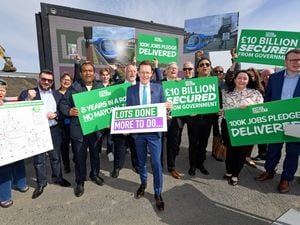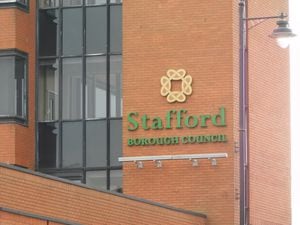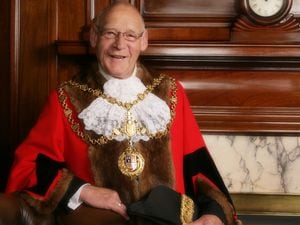Assembly on the brink once more
Sixteen years after the talks at Weston Park, Northern Ireland's devolved assembly once more stands on the brink following a deadlock between the republican and unionist parties.
But it is a testament to how the political landscape has changed that it is issues such as green energy policy and gay marriage that are dividing the politicians today, rather than the decommissioning of weapons.
The Northern Ireland Assembly, based at Stormont in East Belfast, has not met since January, and there seems to be little sign of the stalemate being broken anytime soon, with either a return to direct rule from London, or a third set of elections since May last year, the most likely of outcomes.
And just as it was in 2001, the present crisis was sparked by a ministerial resignation, although this time it came from the republican rather than the unionist side, as was the case 16 years ago.
The late Martin McGuinness, who had served as deputy first minister in a power sharing arrangement between Sinn Fein and the Democratic Unionist Party, quit his post in January this year, ostensibly in protest of First Minister Arlene Foster's role in a controversial green energy scheme, although Mr McGuinness was also understood to have been unhappy about the withdrawal of funding for a scheme teaching the Irish language.
The constitution of the assembly requires that it must be governed by a coalition of unionist and republican parties, and Mr McGuinness's resignation also led to Mrs Foster losing her post. Sinn Fein refused to nominate a successor to Mr McGuinness unless Mrs Foster stood aside while an inquiry into the Renewable Heat Incentive scheme, which saw an estimated £500 million of public money being wasted due to loopholes in the programme.
The failure of the two largest parties in Northern Ireland, the Democratic Unionist Party and Sinn Fein, to come to an agreement led to Northern Ireland Secretary James Brokenshire calling for fresh elections, which were held on March 2 this year, just 10 months after the previous ones. However, far from breaking the deadlock, it intensified it, leaving the DUP with 28 seats and Sinn Fein on 27. It also created a dead heat between the republicans and unionists in the assembly, with each faction holding a combined total of 39 seats.
To complicate matters still further, three of the smaller parties on the assembly – the moderate republican Social Democratic and Labour Party, the moderate unionist Ulster Unionist Party, and the non-sectarian Alliance – declined to take ministerial roles in the administration, instead choosing to form an official opposition to the DUP/Sinn Fein coalition.
In an attempt to break the impasse, Mr Brokenshire extended the deadline for an administration to be formed to June 29, but that also passed without a deal being agreed.
However, when the deadline passed, senior DUP member Edwin Poots said a deal was not even close, and said his preference was for direct rule from Westminster if an agreement could not be reached.
The DUP's deal to support the Conservative administration at Westminster has further strained the relationship, with Sinn Fein saying it has compromised the UK Government's impartiality in mediating between the different parties.
It is a major blow to the progress that has been made over the past 10 years. The devolved assembly had been suspended for five years prior to 2007, when the DUP, then led by Ian Paisley, and Sinn Fein agreed to form a coalition. The two parties had once been bitter enemies, but they governed successfully for a decade, with one-time firebrands Mr Paisley and Mr McGuinness getting on so well that they were labelled "the Chuckle Brothers".





